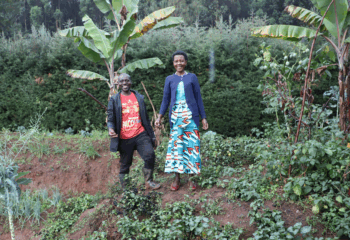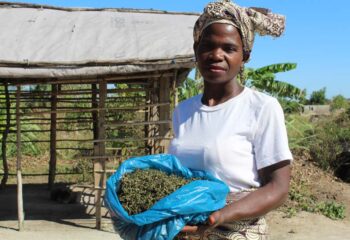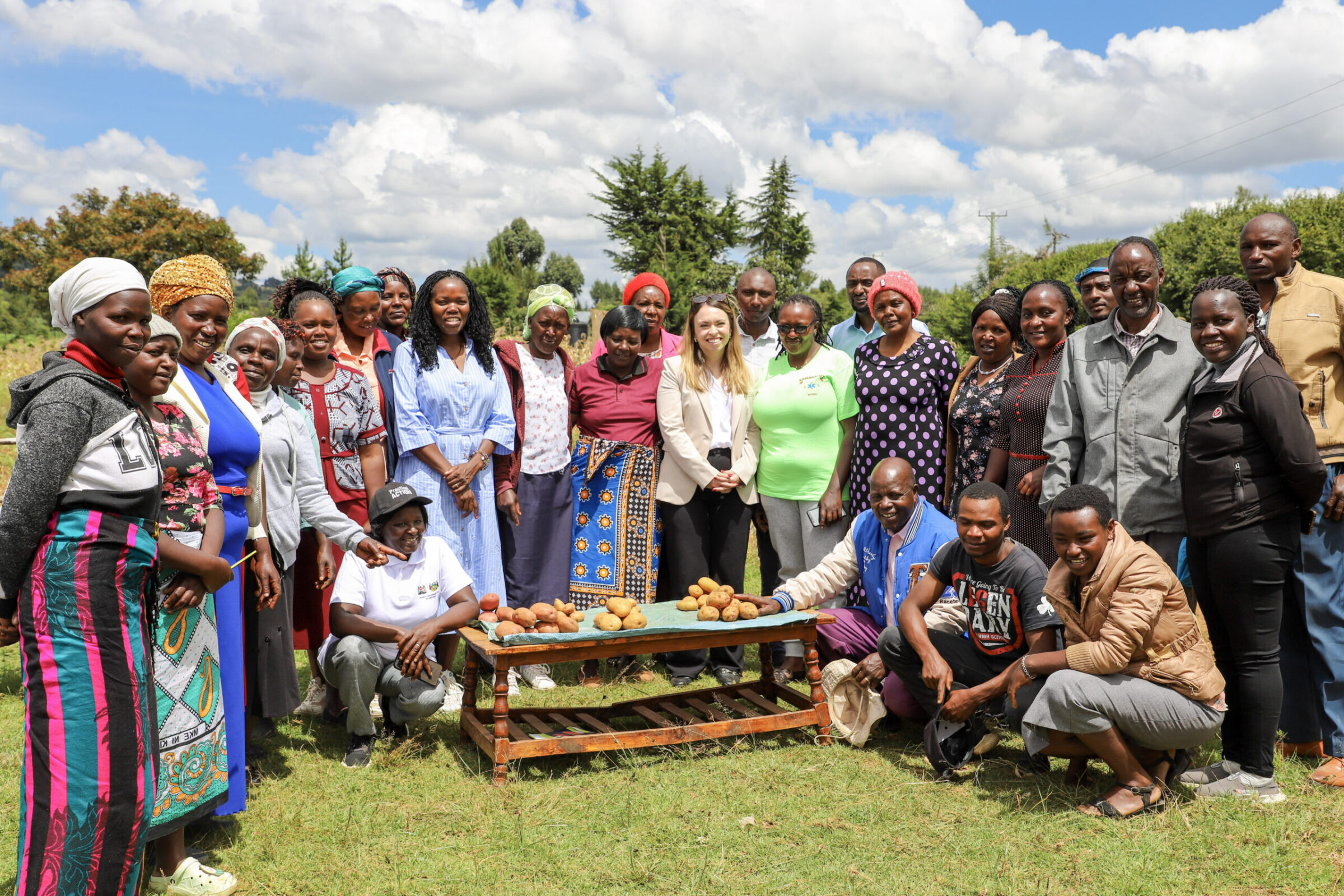
On December 3, the International Fertilizer Development Center (IFDC) hosted a successful close-out event for the Potato Value Chain Capacity Building (PCB) project at the county level. Implemented by IFDC and funded by the Embassy of Ireland in Kenya, the PCB project’s six-year effort (2018-2024) helped smallholder farmers in Nyandarua County adopt sustainable agricultural practices and boost productivity.
For years, smallholder farmers in Nyandarua County struggled with limited access to quality seeds, post-harvest losses, and poor market linkages. These challenges hindered their potential and heightened their vulnerability to food insecurity. To address these issues, the PCB project introduced certified seeds, improved farming techniques, and better market access, transforming the potato farming landscape in the region.
The PCB project’s first phase (2018-2020) prioritized farmer education, strengthening seed systems, and linking growers to reliable markets. Through the Farmer Field Business School (FFBS) model, along with field days, demonstrations, and exchange visits, a total of 5,761 farmers were directly trained, with an additional 12,415 benefiting indirectly.
Training in good agricultural practices and seed quality drove a 165% production increase – from 34 to 90 bags per acre – and a 166% rise in net income.
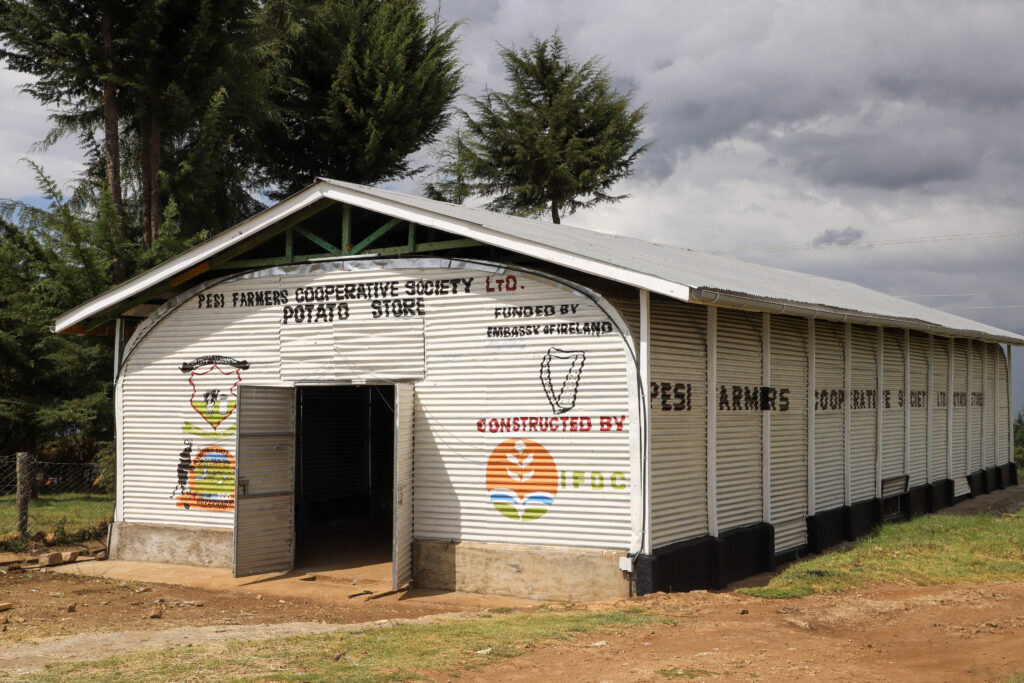
To enhance seed quality and availability, partnerships with companies such as Real IPM and Riari Agri Hub introduced high-yielding, pest- and disease-resistant potato varieties such as Java, Maverick, and Buffalo. Certified seed adoption rose from 7% to 18%, while certified seed usage jumped from 21% to 61%. Over 157 metric tons of certified seeds were distributed, significantly boosting productivity and resilience.
In addition to supporting access to certified seeds and informing policy dialogue, improving market access was a critical focus in the second phase of the PCB project (2021-2023). Offtakers such as Sereni Fries and Kinangop Fries enabled farmers to sell 481,455 kg of ware potatoes worth KES 15,269,277 (U.S. $117,838.46) at an average price of KES 27/kg (U.S. $0.21), considerably better than the prevailing market price of KES 22/kg (U.S. $0.17).
During its third and final phase in 2024, PCB reached a major milestone with the establishment of a 120-metric-ton modern storage facility at the Pesi Farmers’ Cooperative Society. While not yet operational, the facility will soon help over 1,400 farmers reduce post-harvest losses and improve access to markets by providing appropriate storage areas for their potatoes.
Phase 3 also included PCB’s development of the County Agricultural Communication Strategy to strengthen Nyandarua County’s communication systems. The strategy was officially handed over to county officials during the close-out event.
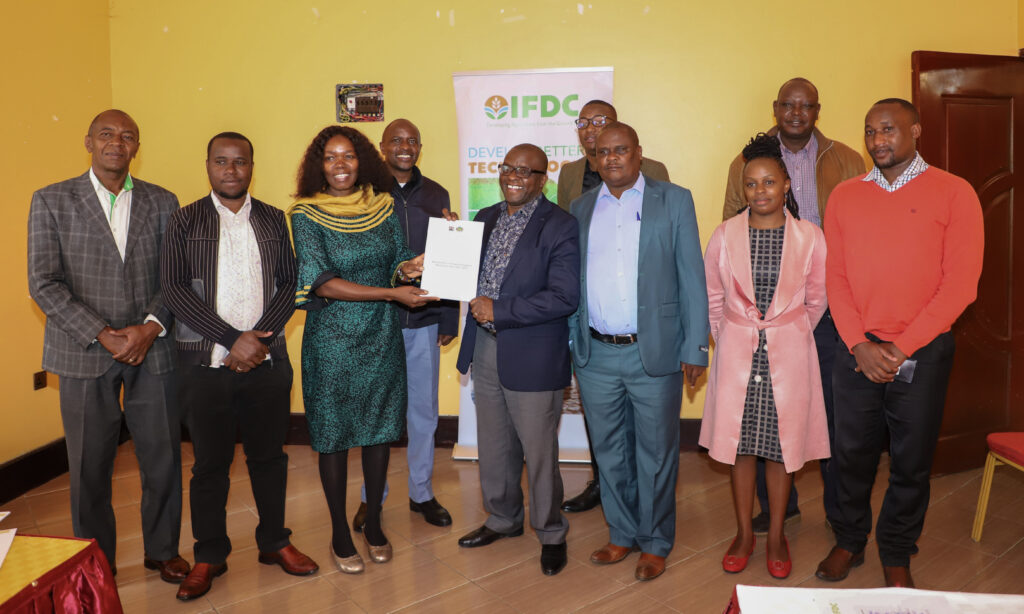
Francis Miringu, Nyandarua’s County Executive Committee Member for Agriculture, Livestock, and Fisheries, highlighted the importance of this improvement, stating, “Even good information can be ineffective if not communicated well.” This communication strategy will help reach farmers more effectively and ensure continued progress in agricultural development.
Further, PCB’s alignment to the Crops (Irish Potato) Regulations, 2019, was greatly helpful for the potato industry in Kenya. These regulations provided much-needed structure to the previously unregulated sector. Key provisions included mandatory registration for stakeholders, standardized packaging (with a maximum unit weight of 50 kg), weight-based pricing, and enforcement of quality control measures. The regulations also emphasized the establishment of collection centers and traceability to streamline operations.
IFDC played a pivotal role in supporting the successful adoption of these regulations. By collaborating with the National Potato Council of Kenya (NPCK), lobbying the government, and engaging stakeholders, the PCB project ensured widespread awareness of these new laws. IFDC also participated in the Regulations’ launch during the National Potato Conference held in Nyandarua County.
“Farming takes patience, planning, and a willingness to adapt. Thanks to IFDC, I now see farming not just as a job but as a way to inspire and empower others.”
Tabitha Wanjiru, Partner Farmer of the PCB project
The alignment of IFDC’s efforts with the Crops (Irish Potato) Regulations, 2019, has been instrumental in ensuring sustainability. By fostering partnerships, promoting certified seeds, and strengthening enforcement, the initiative has laid a solid foundation for growth in the potato sector. Throughout its duration, PCB sought to assist in implementing the Crops (Irish Potato) Regulations, 2019, and other supportive policies.
PCB’s activities supported farmers throughout all its phases. One of the many success stories from Nyandarua County is Tabitha Wanjiru, a partner farmer of the PCB project, whose journey exemplifies the transformations brought on by the project. Starting with a small plot in 2019, she overcame limited resources and skepticism by adopting modern farming techniques, such as soil testing, proper fertilizer use, seed selection, and climate-smart planting methods. As her yields and income grew, she became a leading farmer, training others and inspiring her community.
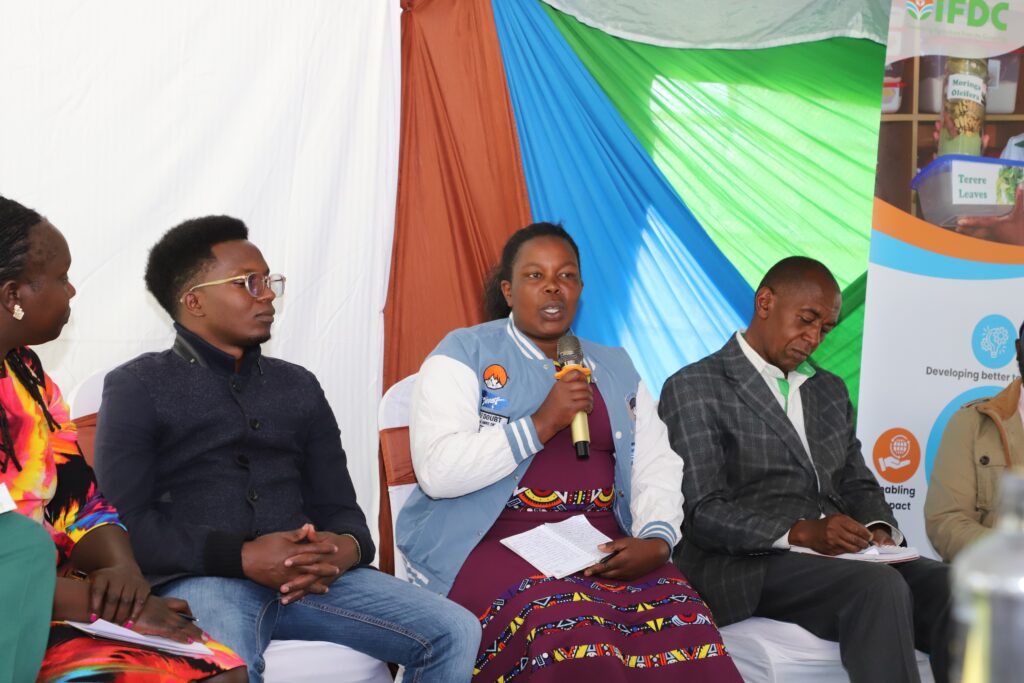
Tabitha’s story illustrates the lasting impact of the PCB project. She began with small steps, but with the support of the project, she expanded her farming and training efforts. Now, she collaborates with local agriculture officers to teach other farmers, especially women and youth, the value of patience and long-term planning in farming. She also continues to explore new methods to improve soil fertility, experimenting with manure and fertilizers to optimize production on her small plots. “Farming takes patience, planning, and a willingness to adapt,” she said. “Thanks to IFDC, I now see farming not just as a job but as a way to inspire and empower others.”
PCB ended its final chapter in Kenya at the close-out event, but its legacy is evident. The skills, infrastructure, and policy changes introduced will continue to benefit Nyandarua County farmers for years to come. The Pesi storage facility, once operational, will play a pivotal role in reducing post-harvest losses and ensuring efficient market access. With sustainable practices firmly established, supportive policy in place, and successful farmer training accomplished, IFDC’s efforts have left an enduring mark on Tabitha Wanjiru, and many other potato farmers, in Nyandarua County.
The PCB project (2018-2024), funded by the Embassy of Ireland in Kenya, was designed to improve the livelihoods of small-scale farmers and families through the adoption of new technologies, including certified potato seed and new varieties, good agricultural practices (GAPs), improved farm management skills, and market access.

